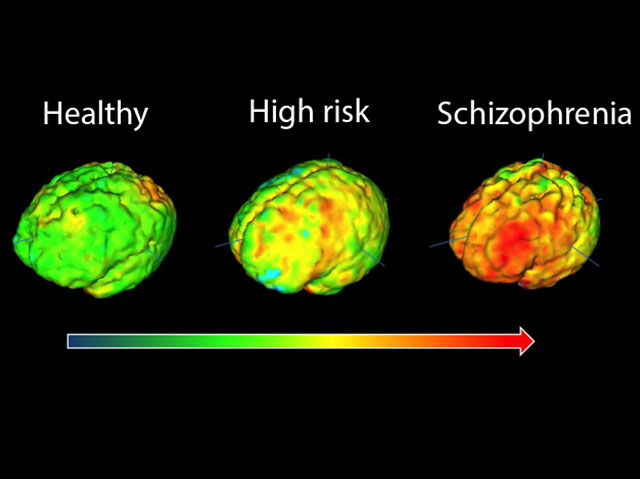By Helen Figueira
March 8, 2016
Time to read: 2 minutes
Deborah Oakley
Every month one of the CSC’s scientists presents their work at an informal seminar for Institute staff. Oliver Howes, who leads the CSC’s Psychiatric Imaging group, recently discussed his research on mental health. He said that one in four of us will experience mental illness at some point in our lives.
His group focuses on severe forms of mental illness, especially schizophrenia. Progress in developing new treatments has been slow. According to Howes there were two drugs for heart failure and two for schizophrenia in the 1950s. Since then, 13 more drugs have been developed for patients with heart problems. But there has been no such progress in schizophrenia.
“It’s like driving around in a Morris Minor. You’re rattling around while other people have swish Audis,” said Howes. It’s particularly difficult to study schizophrenia, partly because scientists can’t rely on the animal models they use to study many other conditions. A key characteristic of schizophrenia is hearing voices, amongst a range of symptoms, and scientists can’t reliably assess the thoughts, feelings and experiences of animals.
Howes and his team use scanners to study the brains of healthy volunteers, people at risk of developing schizophrenia and those with the condition. In a study published last year, they showed that immune cells are more active in the brains of people at risk of schizophrenia as well as those already diagnosed with the disease. This finding could change our current understanding of the condition.

For further information, contact:
Deborah Oakley
Science Communications Officer
MRC Clinical Sciences Centre
Du Cane Road
London W12 0NN
T: 0208 383 3791
M: 07711 016942
E: